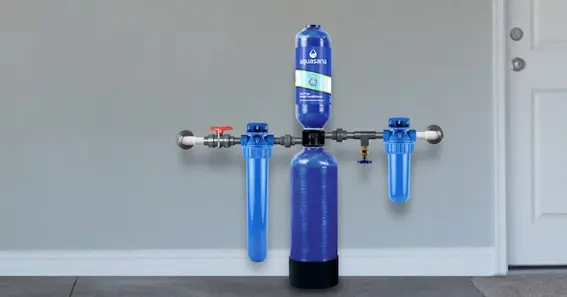Having access to clean and safe water throughout your home is a priority for many homeowners. Whole house water filtration systems are designed to filter every drop of water entering your home, ensuring it’s free from contaminants whether you’re drinking, cooking, showering, or washing clothes. This makes them a comprehensive solution compared to under-sink or countertop filters, which only target specific area
What is Whole House Water Filtration?
Whole house water filtration involves installing a filter system at the point where water enters your home, so every faucet and shower benefits from purified water. These systems are particularly effective at removing a wide range of contaminants like sediment, chlorine, pesticides, heavy metals, bacteria, and more.
Also Read N: Walked For A Cause NYT Crossword
Types of Whole House Water Filtration Systems
- Sediment Filters: These filters are the first line of defense, removing larger particles like sand, rust, and debris, which can clog plumbing and appliances. They’re often paired with other filters for a multi-stage system.
- Activated Carbon Filters: Known for their ability to remove chlorine, chemicals, and unpleasant odors, these filters are great for improving the taste and smell of water. They also target some volatile organic compounds (VOCs).
- Kinetic Degradation Fluxion (KDF) Filters: These filters use a chemical process called redox to reduce heavy metals such as iron, lead, and mercury. They are effective in controlling microorganisms and algae.
- Ultraviolet (UV) Filters: UV filters are excellent for disinfecting water, targeting bacteria, viruses, and other pathogens that chemical filters might miss. These are especially useful for homes relying on well water.
- Water Softener Systems: These systems are designed to remove hard water minerals like calcium and magnesium, which can cause limescale buildup in pipes and appliances. They are often combined with other filtration methods to offer a complete.
Also Read P: Where Can I Get News Feed For Music?
Benefits of Installing a Whole House Water Filtration System
- Improves Water Quality: Removes contaminants like chlorine, heavy metals, and bacteria, resulting in cleaner, better-tasting water.
- Protects Appliances: Reduces mineral buildup, extending the lifespan of water heaters, washing machines, and dishwashers.
- Eco-Friendly: Reduces the need for bottled water, minimizing plastic waste and saving money over time.
- Convenient: Filters all the water in your home at once, so you don’t need separate filters for each tap.
Top Whole House Water Filtration Recommendations
- Express Water Heavy Metal 3-Stage Filter: This system offers comprehensive filtration with three stages targeting heavy metals, sediment, and chlorine. It maintains a high flow rate (15 GPM), ensuring no drop in water pressure, and can handle up to 100,000 gallons of water before needing filter changes.
- Aquasana Rhino Whole House Filter: Ideal for well water, this system features five stages, including a UV filter for sterilization. It effectively tackles sediment, bacteria, and chlorine, making it a great choice for areas with water quality concerns.
- iSpring WGB32B 3-Stage Filtration System: A reliable choice for homes on city water, this system removes chlorine, sediment, and various chemicals without compromising water pressure. It’s a budget-friendly option with easy installation for DIY enthusiasts.
Choosing the Right System
When selecting a whole house water filtration system, consider your home’s specific needs:
- Water Source: City water might need different filtration than well water. Test your water to identify key contaminants.
- Flow Rate: Ensure the system can handle your household’s water usage without affecting pressure.
- Filter Lifespan: Look for systems with long-lasting filters to minimize maintenance efforts.
- Installation: Some systems are easy to install yourself, while others may require professional assistance.
FAQ
- What does a whole house water filtration system remove? It can filter out sediments, chlorine, heavy metals, bacteria, pesticides, and other impurities depending on the filter type.
- How often should I replace the filters? Most filters need replacement every 6-12 months, but it varies based on water usage and filter type.
- Can I install a whole house filtration system myself? Some systems are DIY-friendly, but professional installation is recommended for complex setups to ensure optimal performance.
- How much does a whole house water filtration system cost? Prices range from $500 to over $3,000 depending on the system’s complexity and features.
- Will a whole house filter reduce water pressure? High-quality systems are designed to maintain pressure. Choosing the right flow rate for your household size prevents noticeable pressure drops.
Incorporating a water filtration for the whole house ensures every aspect of your home’s water usage is cleaner, healthier, and more efficient, from drinking to bathing. This investment not only provides peace of mind but also extends the lifespan of household appliances while contributing to a greener planet.
This blog integrates the focus keyword in the first paragraph and highlights it in a subheading, maintaining best SEO practices for visibility.
Read a fascinating piece here walked-for-a-cause-nyt-crossword










